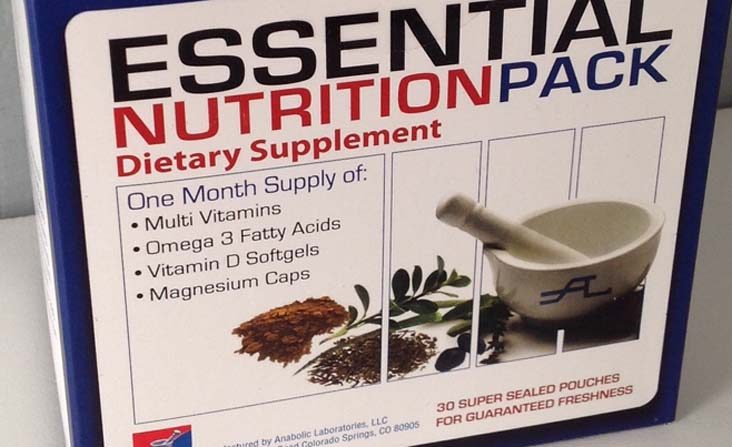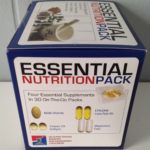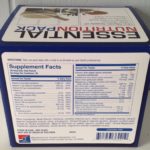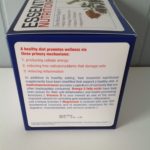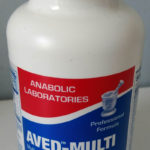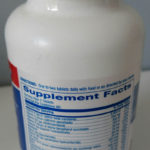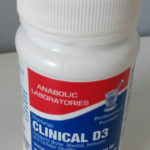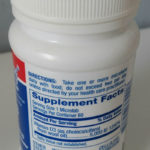Just having the TV and radio on in the back ground lately and my ears seem to be picking up on more and more news reports about Vitamin D and how important it is. These few nice days we have been getting here in sunny South Jersey have given us an early taste of spring and we should probably at least somewhat talk about Vitamin D and why we see so many deficiencies. Dating back to 2008, Harvard Health was already on the topic of the importance of Vitamin D for more than just bone health. We all know that we need Vitamin D to helps us absorb calcium, but lately we are seeing more and reasons to keep your Vitamin D levels topped off.
Link: http://www.health.harvard.edu/staying-healthy/time-for-more-vitamin-d
Starting at about September, the fall hits for most of the northern hemisphere which means less time in the sun. From October until May, most of us who live in New Jersey, Pennsylvania, and Delaware are more or less running on a deficit in our Vitamin D stores due to the position of Earth with respect to the sun (the winter season) as well as the fact that we go outside much less due to the temperature. Some of us are also greatly affected by day light savings time as well when looking at working hours, versus time in the sun, versus active hours.
Looking at a map of the United States also shows that we have a bit of a problem when it comes to Vitamin D levels Check out the map below:
Thanks to those scientists who figure the tough questions out for us, in the winter time MOST larger US cities are probably starved for the amount of sunlight it takes to keep your Vitamin D levels adequate! Those who live in the Southern United States are lucky, meaning areas like Florida, Texas, Arizona and Southern California all get more sun than almost all the other areas of the United States. You can clearly see what this means for those of us relative to New Jersey as shown in the map above. When Vitamin D blood levels are compiled for the United States, we also feel that values taken from the southerners sometimes skew levels when compared to someone who lives in the north. To put it simply, if you live in Miami, San Antonio, or Los Angeles, you probably get a good bit more sun than someone who lives in Philadelphia, Chicago, or Seattle! This would stand to reason then that you probably need a bit more Vitamin D supplementation if you live above the 37th parallel, so again, see the image above!
So what else do we know about Vitamin D that really help us, take a look below:
Vitamin D protects against colds and flu, finds major global study
Science Daily Link: https://www.sciencedaily.com/releases/2017/02/170216110002.htm
Vitamin D helps to reduce respiratory infections
Science Daily Link: https://www.sciencedaily.com/releases/2016/11/161116103005.htm
High quality evidence suggests Vitamin D can reduce asthma attacks
Science Daily Link: https://www.sciencedaily.com/releases/2016/09/160906085652.htm
Vitamin D deficiency increases risk of chronic headache
Science Daily Link: https://www.sciencedaily.com/releases/2017/01/170104103543.htm
Increased levels of active vitamin D can help to optimize muscle strength
Science Daily Link: https://www.sciencedaily.com/releases/2017/02/170215145953.htm
So how do you get around 1,000 IU’s each day?
Currently, the RDA (Recommended Daily Allowance) of Vitamin D is 400 IU’s daily. Most low end multivitamins contain around 400 IU’s of Vitamin D for this reason. People who are living in the north in the winter time might actually need a bit more than that. While we can’t recommend mega dosing at this time due to limited evidence, a strong amount of evidence shows that you probably should get 800-1000 IU’s daily living in areas like New Jersey. Being that you are not living in an area like Florida, Texas or Southern California, and if your diet is not that great, you may want to think about supplementation. Your family doctor can be a huge help here as testing your levels with blood tests is fairly simple to see what your baseline levels are.
At the office, we carry several types of supplementation avenues with respect to Vitamin D. All of the doctors at this office use the Anabolic Labs Essential Nutrition Pack which contains high quality vitamins, minerals, and omega 3’s. Inside the box are 30 days worth of exactly what you need. We also carry Vitamin D Micro Tabs (very small, easy to swallow) separately, and a product known as AVED (A Vitamin Every Day), which is a high quality daily vitamin.
Click on the images below to see a larger view of the products and supplement facts:
First up, the Anabolic Labs Essential Nutrition Pack (30 days, pretty much the best you can buy hands down):
Next up, Anabolic Laboratories AVED-Multi (AVED means a A Vitamin Every Day):
And last, but not least, the product that a lot of our orthopedic sports medicine and family doctors refer to us for, our super tiny (EASY TO SWALLOW) Clinical D3 microtabs!
Are you in need of even more information about Vitamin D? Check out this paper from the Mayo Clinic!
Vitamin D Deficiency in Adults: When to Test and How to Treat:
https://www.ncbi.nlm.nih.gov/pmc/articles/PMC2912737/
Abstract:
Recent evidence for the nonskeletal effects of vitamin D, coupled with recognition that vitamin D deficiency is common, has revived interest in this hormone. Vitamin D is produced by skin exposed to ultraviolet B radiation or obtained from dietary sources, including supplements. Persons commonly at risk for vitamin D deficiency include those with inadequate sun exposure, limited oral intake, or impaired intestinal absorption. Vitamin D adequacy is best determined by measurement of the 25-hydroxyvitamin D concentration in the blood. Average daily vitamin D intake in the population at large and current dietary reference intake values are often inadequate to maintain optimal vitamin D levels. Clinicians may recommend supplementation but be unsure how to choose the optimal dose and type of vitamin D and how to use testing to monitor therapy. This review outlines strategies to prevent, diagnose, and treat vitamin D deficiency in adults.

